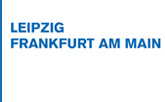Katalog der Deutschen Nationalbibliothek
Ergebnis der Suche nach: dcs=3071* or dcs=3072* or dcs=3073*
|
|
|
| Link zu diesem Datensatz | https://d-nb.info/1321770855 |
| Titel | System-Theoretical Urban Development : The Potsdam Lodestar Approach / by Manfred Rolfes, Jan Lorenz Wilhelm |
| Person(en) |
Rolfes, Manfred (Verfasser) Wilhelm, Jan Lorenz (Verfasser) |
| Organisation(en) | SpringerLink (Online service) (Sonstige) |
| Werk(e) | System(theoret)ische Stadtentwicklung |
| Ausgabe | 1st ed. 2024 |
| Verlag | Wiesbaden : Springer Fachmedien Wiesbaden, Imprint: Springer |
| Zeitliche Einordnung | Erscheinungsdatum: 2024 |
| Umfang/Format | Online-Ressource, XI, 263 p. 54 illus. : online resource. |
| Andere Ausgabe(n) |
Erscheint auch als Druck-Ausgabe: Rolfes, Manfred: System-theoretical urban development Printed edition:: ISBN: 978-3-658-42251-6 |
| Inhalt | Introduction -- Urban development and urban complexity -- Urban development -- Task areas of cities and municipalities -- New tasks and communication structures (in) the municipality -- Challenges and problem orientation of politics and administration in the municipality -- Overall social trends and urban development -- Complexity in urban development -- Conclusions -- System(theoret)ic approaches in urban development: development history, perspective and basic positions -- The systemic approach and its system-theoretical background -- System-theoretical insights and core ideas -- Development history of the systemic approach -- City and urban development from a more theorizing perspective -- City and urban development from a more application-oriented perspective -- Self-understanding and basic positions of system(theoret)ic approaches in urban development. City from a systems (theoretical) perspective -- City and urban development from a more theoretical perspective -- City and urban development from a more applied perspective -- Self-conception and basic positions of systems (theoretical) interventions in dealing with urban complexity -- Self-conception -- Four basic positions -- Concluding remarks -- Introduction to the Potsdam lodestar approach -- Starting points and emergence of the Potsdam lodestar approach -- Basic structure of the Potsdam lodestar approach -- Dealing with the lodestar approach and structure of the sections -- Process dimension of control - Art of mediation and negotiation -- What is control? Between optimism and scepticism -- Forms of control: Self-control and contextual control -- Forms of control in urban development practice: knowledge is power -- Recommendations for practice: the guiding principle of soft control -- Control through boundary planning: fields of action, phase models and architecture -- Control through knowledge: Discursive practices, questions and explicitation -- Steering through relationship: trust, appreciation and role clarification -- Concluding remarks -- Process dimension alignment - establishing a future perspective -- The problem with the problem -- On the importance and risk of imagining the future -- Recommendations for practice: concern clarification, vision work and strategy work as three directional fields of work -- Concern clarification - looking ahead from the beginning! -- Vision work - the development of future -- Strategy work - operationalising the path to the future and keeping an eye on it! -- Concluding remarks -- Process dimension of system analysis - creating common hypotheses of reality -- The great importance of analyses and scientific expertises -- Gaining knowledge - expertises for illuminating "new facts" -- Legitimation - expertises for the assertive presentation of "known facts" -- On the opportunities and limits of spatial analyses -- Stabilizing functions of spatial approaches and analyses -- Risks of spatial observation and analysis -- Communicability of expert knowledge and analysis results -- Challenges of analytical and expert-generated knowledge -- The art of connectivity -- Recommendations for practice: the three-dimensional spatial system analysis -- Analysis of the process and network level -- Spatial and subject-specific analyses -- Reflection on the analysis findings -- Concluding remarks -- Process dimension of cooperation - Participants and bridging system boundaries -- Participants in the urban cooperation network: organizations, persons, networks -- Organizations - departments -- Interaction systems and persons -- Co-irritation, cooperation, co-evolution of participants -- Networks for bridging sense and system boundaries -- Citizen involvement and participation -- Your opinion matters to us! Really? -- Explanation of terms: Participation - Participation -- Target groups and their activation -- Modes of urban cooperation -- Conflictual cooperation as a multifaceted everyday occurrence -- Systems-theoretical approach to conflicts -- The factual, social, temporal and spatial dimensions of conflicts -- Typifications of conflicts -- Recommendations for practice: conflict management and participation design -- Dealing with conflicts: between moderation and mediation -- Contextualisation as a framework condition for successful participation -- Concluding remarks -- Process dinebsion reflection - Establishing evaluation-based learning cultures -- Reflective urban development: genesis of a trend -- Three discourses in the background -- Demanded expansion of reflexivity and learning -- Evaluation, learning and reflection in urban development -- Evaluations as planned reflexive observation -- Learning urban development through evaluations? -- Evaluations without guarantee of learning -- The steering function and symbolizing function of evaluation -- The political steering function of evaluation -- Symbolizing learning and reflection through evaluation -- Recommendations for practice: the six decision fields of an evaluation project -- Reflection on the "why" of the evaluation -- Agreement on the design of the evaluation -- Clarification of expectations of the object of evaluation -- Valid observation of the object of evaluation -- Transparent assessment of the object of evaluation -- Organisation of the communication of evaluation results -- Concluding remarks -- Conclusion |
| Persistent Identifier |
URN: urn:nbn:de:101:1-2024022703125369414731 DOI: 10.1007/978-3-658-42250-9 |
| URL | https://doi.org/10.1007/978-3-658-42250-9 |
| ISBN/Einband/Preis | 978-3-658-42250-9 |
| Sprache(n) | Englisch (eng) |
| Schlagwörter | Urbanität ; Komplexität ; Systemtheorie ; Stadtentwicklung ; Strategie |
| DDC-Notation | 307.1416 [DDC23ger] |
| Sachgruppe(n) | 300 Sozialwissenschaften, Soziologie, Anthropologie |
| Online-Zugriff | Archivobjekt öffnen |

